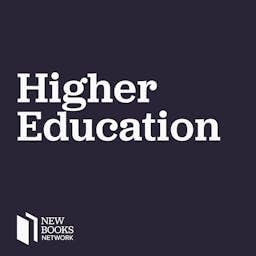Among the most common challenges on college campuses today is figuring out how to navigate our politically charged culture and engage productively with opposing viewpoints. In Try to Love the Questions: From Debate to Dialogue in Classrooms and Life (Princeton UP, 2024), Lara Schwartz introduces the fundamental principles of free expression, academic freedom, and academic dialogue, showing how open expression is the engine of social progress, scholarship, and inclusion. She sheds light on the rules and norms that govern campus discourse—such as the First Amendment, campus expression policies, and academic standards—and encourages students to adopt a mindset of inquiry that embraces uncertainty and a love of questions. Empowering students, scholars, and instructors to listen generously, explore questions with integrity, and communicate to be understood, Try to Love the Questions includes writing exercises and discussion questions in every chapter, making it an indispensable resource for anyone interested in practicing good-faith dialogue. Content note: The “test” Dr. Gessler references is a quiz on contraception, and the prevention and transmission of several different diseases; the prizes offered were candy bars. Our guest is: Professor Lara Schwartz, who focuses on dialogue across difference, freedom of speech and dissent, inclusive pedagogy, dispute resolution, and depolarization. Drawing on her experience as a legislative lawyer, lobbyist, and communications strategist in leading civil rights organizations, Professor Schwartz understands how to lay the groundwork for important, tough conversations across difference. She is the author of Try to Love the Questions. Our host is: Dr. Christina Gessler, who is a full-time writing coach, grad student coach, and developmental editor. She is the producer and show host of the Academic Life podcast. Playlist for listeners: The Good-Enough Life The Entrepreneurial Scholar What Do You Want Out of Life My What-if Year Gay on God's Campus Black and Queer On Campus Moments of Impact You Have More Influence Than You Think The Last Human Job The Ai Mirror Welcome to Academic Life, the podcast for your academic journey—and beyond! You help support the show by downloading, teaching with, and recommending episodes. Join us again to learn from more experts inside and outside the academy, and around the world. Missed any of the 300+ Academic Life episodes? Find them all here. And thank you for listening! Learn more about your ad choices. Visit megaphone.fm/adchoices
続きを読む
一部表示
 40 分
40 分 39 分
39 分 34 分
34 分 45 分
45 分 56 分
56 分 58 分
58 分 1 時間 1 分
1 時間 1 分 1 時間 4 分
1 時間 4 分
